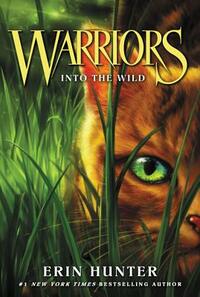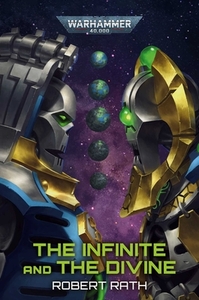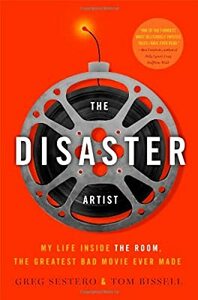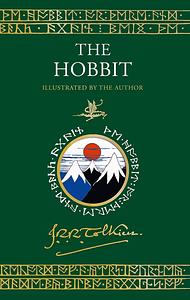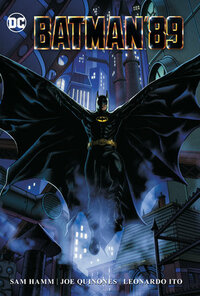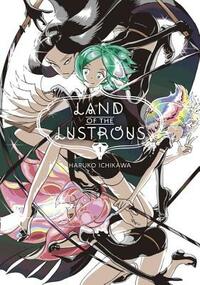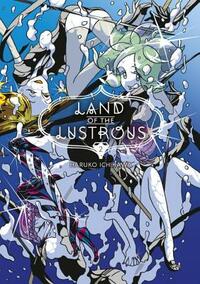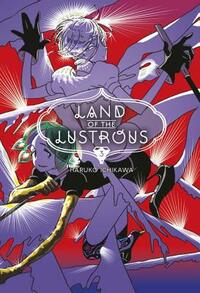Take a photo of a barcode or cover
the_scrivener_named_bartleby's Reviews (140)
I had high hopes given the cult that surrounds this book, but it was shockingly mundane when all was said and done. I kept expecting plot twists or unexpected lessons about honor and tough love, but no. Instead, everything plays out exactly as expected. The bad guys are the bad guys for very simple reasons. The characters who are good are just that, with no nuance or moments where they make mistakes. When there are massive things at stake, main characters often get distracted to the detriment of the lives of those around them. I didn't think my expectations were unreasonably high either--when it comes to children's media you can get books that are fairly complex, but this was just mediocre. Functionally harmless for kids, I guess, but nowhere near the complexity that people tout it for.
I think it would have helped to have more fantasy elements; I mean, the cats are already talking to one another and expressing complex thoughts, and clans have "medicine cats" that gather herbs for healing, staving off starvation, and whatever else. They're not wild animals so much as a series of tribes with a shared mythos, so the explicit existence of magic wouldn't be that odd. Maybe future installments use it, but so far this was a rough start.
I think it would have helped to have more fantasy elements; I mean, the cats are already talking to one another and expressing complex thoughts, and clans have "medicine cats" that gather herbs for healing, staving off starvation, and whatever else. They're not wild animals so much as a series of tribes with a shared mythos, so the explicit existence of magic wouldn't be that odd. Maybe future installments use it, but so far this was a rough start.
Fun, 21st-century pulp fiction. Nothing much of substance other than an advertisement to buy and paint plastic toys-in this case, robot skeletons-now that you know they have backstory as well as exciting battles you can recreate. But functionally harmless, amusing, and readable, which is more than I can say for the unironic Starship Troopers fanfiction most other books in this franchise are. To think the robots are more human than the actual humans in Warhammer…
That being said, it’s that lack of something deeper that, while fun, made this a slog to read. Endless battle reports and descriptions of chitin and gnashing and necrodermis and metal bogged down the more fun narrative of two intellectual rivals constantly bickering and manipulating each other. Things get better by the last third where the fighting has more of a purpose. But all this is still not to mention the fact you need to have an in-depth knowledge of 40K to get anywhere with this book.
That being said, it’s that lack of something deeper that, while fun, made this a slog to read. Endless battle reports and descriptions of chitin and gnashing and necrodermis and metal bogged down the more fun narrative of two intellectual rivals constantly bickering and manipulating each other. Things get better by the last third where the fighting has more of a purpose. But all this is still not to mention the fact you need to have an in-depth knowledge of 40K to get anywhere with this book.
Ghost Rider is exactly as good as he is bad. That is to say when he’s really good, there’s an amazing sweet spot between the absolute hokey nonsense of retro comics that has you laugh and ask “okay, sure. What’s next?” and surprisingly the most emotional Marvel superhero to exist. Johnny can be shockingly vulnerable at times, and it makes him fascinating to read.
And then there’s stuff that aged poorly or just plain sucks. There’s an entire saga about a Native American trying to reclaim the land of his ancestors, and it’s pretty rough—no real sympathy is given to his case, and he kidnaps a damsel just to make his point; and that’s the NON-racist part of that whole story. At one point Johnny strikes Roxanne, his love interest, and she just forgives him, and it doesn’t register as a genuine character moment, expressing his emotional volatility. If anything, it’s completely out of character and while never bringing it up again helps me ignore it ever happened, it weirdly made it that much more of just a casual thing.
The story is some of the best retro-comic stuff I’ve read, though, and boy I can’t wait for more.
And then there’s stuff that aged poorly or just plain sucks. There’s an entire saga about a Native American trying to reclaim the land of his ancestors, and it’s pretty rough—no real sympathy is given to his case, and he kidnaps a damsel just to make his point; and that’s the NON-racist part of that whole story. At one point Johnny strikes Roxanne, his love interest, and she just forgives him, and it doesn’t register as a genuine character moment, expressing his emotional volatility. If anything, it’s completely out of character and while never bringing it up again helps me ignore it ever happened, it weirdly made it that much more of just a casual thing.
The story is some of the best retro-comic stuff I’ve read, though, and boy I can’t wait for more.
Very good reading for fans of the movie and the strange mythos of Tommy Wiseau, but can occasionally get into way flowerier language than is necessary ("The deep cherry red of emergency," Jesus Christ)
This is a perfect book.
On the whole I’ve heard it described as a kid’s book, and content-wise I suppose I can’t object save for some pithy fantasy violence and mentions of alcohol, but in terms of keeping up with the complexity and the characters, I would think it best to read it as an adult.
Though much time is taken in describing a long journey—the kind of adventure one dreams about in childhood—the comforts of hearth and home are still frequent and provide frequent reprieve. It’s interesting how little happens; you could summarize it in an hour, but it’s the detail and the attention to things like songs and fictional culture that let you dawdle and feel lost. It is a pleasure to read and all should make an effort to do so.
On the whole I’ve heard it described as a kid’s book, and content-wise I suppose I can’t object save for some pithy fantasy violence and mentions of alcohol, but in terms of keeping up with the complexity and the characters, I would think it best to read it as an adult.
Though much time is taken in describing a long journey—the kind of adventure one dreams about in childhood—the comforts of hearth and home are still frequent and provide frequent reprieve. It’s interesting how little happens; you could summarize it in an hour, but it’s the detail and the attention to things like songs and fictional culture that let you dawdle and feel lost. It is a pleasure to read and all should make an effort to do so.
Absolutely atrocious. This would be one star if the art weren’t so unforgivably good. The worst part of the political angle is that it was plausible until Robin was a zoomer from the 2020s who absolutely does not fit into the Civil Rights motif that Harvey and the rest of Burnside represent. The politics of the current age, while they are descendent from the past, do not get to anachronistically go back to try representing the zeitgeist of “89”, much less the anachronistic universe that the Burton movies created. The worst part is that a story about Harvey Dent and inequality is baked into his character concept perfectly, and they still fucked it up—managing only to get his design and his insanity sequences (and the art overall, I cannot stress that enough) right.
The Ambivalent Internet: Mischief, Oddity, and Antagonism Online
Ryan M. Milner, Whitney Phillips
This book is as aggravating as it is great. If ever a book earned a middle-of-the-road score, it would be this one.
It is hard to hate the authors who have finally taken an analytical lens to things like Tommy Wiseau's The Room and creepypasta and even less colorful Internet trolling like the "Delete System 32" meme. Such a thing is possible only by natives of this digital age, and when it came to many things I was familiar with, I was very impressed with how well they understood and tracked the source material. Their comparisons to historical precedent are hit-or-miss. I can buy memes and the comparison to Xeroxlore and folklore. I'm less inclined to buy comparisons of Trump to violentincensed politicians of the 1800s, particularly given that this book came out before the January 6th insurrection attempt. I wonder if the authors ever regret they couldn't have published this work in the wake of that...
On the other hand, the constant bias was infuriating to deal with if one had any familiarity with the topics at hand. For example: When reporting on 4chan to start, they bifurcate their arguments to strictly /b/ and /x/, as those are simply the more interesting ones. There's no mention of the site's history, its start on SomethingAwful, and some of its more good, if ambivalently motivated, activism. The "Don't Fuck With Cats" territory, some of earlier Anonymous's work against Scientology, and so forth. This is by-and-large intentional on the authors' part, frequently citing the principle that to restate or give an in-depth overview of something is to proliferate it, and the authors felt uncomfortable doing so. Fair enough. So why are all of Trump's racially charged offenses given light? Why is there a painstaking beat-for-beat transcription of all of "Trump Effect" given? The portrayal there is completely ambivalent (save for pithy, and irritating, quips pleading with an imagined international audience for the book not to judge all Americans when it came to the democratically elected President) and incapable of swaying anyone who wasn't going to be swayed in the first place. It's proof the authors CAN do it if they apply themselves. So why don't they? At the end of the day, what it infuriatingly belies is that the writers simply failed to do the prerequisite research, and this faded half-picture of the complete truth, if not an outright misrepresentation, is going to be what gets cited and, itself, proliferated.
This is a frustration I have because when they do know a topic and they are passionate about it, it is presented with an impeccably traced lineage, notable offshoots, and the occasional connection to greater rhetoric or a historic precedent.
The interjections from the authors' lives hover on the 3-star borderline themselves, for as the reader, you recognize these are the people who are writing the book. When they do well, you identify the circles you both share (A fan of The Room, an interest in creepypasta, some bemused horror at the fact that, oh Jesus, there used to be Erin Esurance inescapably in banner ads and Newgrounds) and when they do poorly, the more insipid banalities of their lives grate on you, like (for lack of a better word) the millennial smugness at putting "FUCK" in every book because a presumably WASP-y upbringing frowned upon it but now that they're "adulting" and have a degree or two, they get to make the rules. It's an entry-level faux-punk post-Mormon/Catholic running into a tattoo parlor to get an oh-so-original pentagram tattoo. You're not as cool or edgy as you wish you were, and considering the trolls and slur-slinging laissez-faire ambivalent people you're reporting on, you should second-guess why you would even want to be. It's pathetic. That childishness seeps into every noncommittal half-assed overview of a more complex topic, whereas that same person or persons can write something demonstrably good when they apply themselves.
It is hard to hate the authors who have finally taken an analytical lens to things like Tommy Wiseau's The Room and creepypasta and even less colorful Internet trolling like the "Delete System 32" meme. Such a thing is possible only by natives of this digital age, and when it came to many things I was familiar with, I was very impressed with how well they understood and tracked the source material. Their comparisons to historical precedent are hit-or-miss. I can buy memes and the comparison to Xeroxlore and folklore. I'm less inclined to buy comparisons of Trump to violentincensed politicians of the 1800s, particularly given that this book came out before the January 6th insurrection attempt. I wonder if the authors ever regret they couldn't have published this work in the wake of that...
On the other hand, the constant bias was infuriating to deal with if one had any familiarity with the topics at hand. For example: When reporting on 4chan to start, they bifurcate their arguments to strictly /b/ and /x/, as those are simply the more interesting ones. There's no mention of the site's history, its start on SomethingAwful, and some of its more good, if ambivalently motivated, activism. The "Don't Fuck With Cats" territory, some of earlier Anonymous's work against Scientology, and so forth. This is by-and-large intentional on the authors' part, frequently citing the principle that to restate or give an in-depth overview of something is to proliferate it, and the authors felt uncomfortable doing so. Fair enough. So why are all of Trump's racially charged offenses given light? Why is there a painstaking beat-for-beat transcription of all of "Trump Effect" given? The portrayal there is completely ambivalent (save for pithy, and irritating, quips pleading with an imagined international audience for the book not to judge all Americans when it came to the democratically elected President) and incapable of swaying anyone who wasn't going to be swayed in the first place. It's proof the authors CAN do it if they apply themselves. So why don't they? At the end of the day, what it infuriatingly belies is that the writers simply failed to do the prerequisite research, and this faded half-picture of the complete truth, if not an outright misrepresentation, is going to be what gets cited and, itself, proliferated.
This is a frustration I have because when they do know a topic and they are passionate about it, it is presented with an impeccably traced lineage, notable offshoots, and the occasional connection to greater rhetoric or a historic precedent.
The interjections from the authors' lives hover on the 3-star borderline themselves, for as the reader, you recognize these are the people who are writing the book. When they do well, you identify the circles you both share (A fan of The Room, an interest in creepypasta, some bemused horror at the fact that, oh Jesus, there used to be Erin Esurance inescapably in banner ads and Newgrounds) and when they do poorly, the more insipid banalities of their lives grate on you, like (for lack of a better word) the millennial smugness at putting "FUCK" in every book because a presumably WASP-y upbringing frowned upon it but now that they're "adulting" and have a degree or two, they get to make the rules. It's an entry-level faux-punk post-Mormon/Catholic running into a tattoo parlor to get an oh-so-original pentagram tattoo. You're not as cool or edgy as you wish you were, and considering the trolls and slur-slinging laissez-faire ambivalent people you're reporting on, you should second-guess why you would even want to be. It's pathetic. That childishness seeps into every noncommittal half-assed overview of a more complex topic, whereas that same person or persons can write something demonstrably good when they apply themselves.
I don't want to come off overly schmaltzy and give this too high a score, but it was just so charming from start to finish. I don't think there was a single moment where I wasn't smiling at either the comedy or the drama.
This might be a me thing, but sometimes I can't tell the characters apart, and the action is a little hard to interpret at times. A colored version might help, to be honest.
This might be a me thing, but sometimes I can't tell the characters apart, and the action is a little hard to interpret at times. A colored version might help, to be honest.
I like how smoothly the series has transitioned from comedy to more high-stakes conflicts, though not without slight growing pains (much like the plot itself.) I trust the plan, though—it’s clear everything happening is deliberate and leading to an exact resolution.
An absolutely haunting ending to the volume, and the turning point of the series, it feels like.
The art feels like it’s received a colossal bump in quality and settled into its own, although the forms of the Lunarians and what they’re supposed to be is still confusing sometimes. The air of mystery is fine, it’s the physical that confuses me.
There are great story masterstrokes—Phos’s decaying memory is used to reveal backstory the reader is otherwise not privy to. The species doesn’t physically mature, so the story shifts to adapt its metaphor of growing old and leaving behind childish ambition and innocence in a way consistent with its own lore.
All in all, the best volume so far.
The art feels like it’s received a colossal bump in quality and settled into its own, although the forms of the Lunarians and what they’re supposed to be is still confusing sometimes. The air of mystery is fine, it’s the physical that confuses me.
There are great story masterstrokes—Phos’s decaying memory is used to reveal backstory the reader is otherwise not privy to. The species doesn’t physically mature, so the story shifts to adapt its metaphor of growing old and leaving behind childish ambition and innocence in a way consistent with its own lore.
All in all, the best volume so far.
